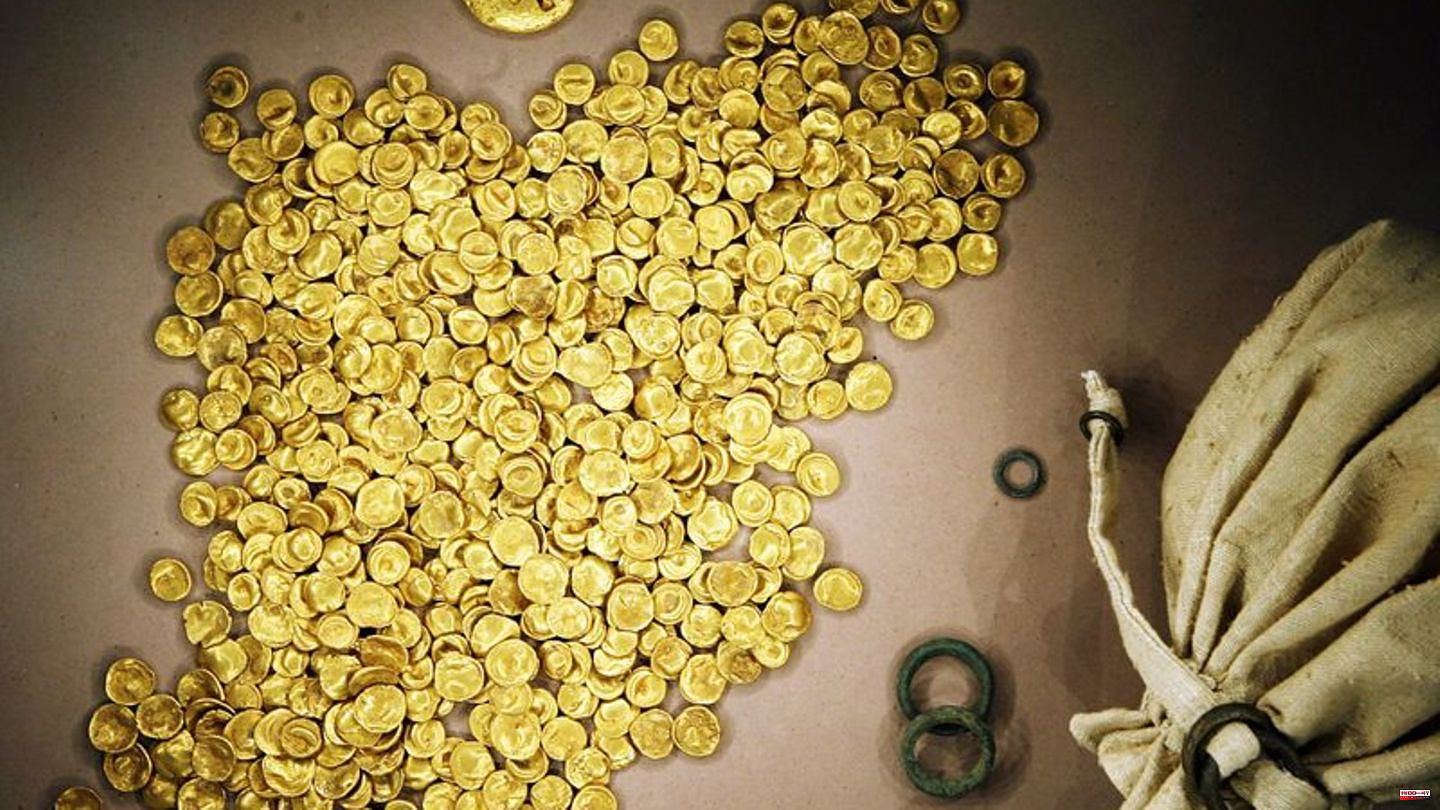Around three months after the Celtic gold treasure was stolen in Manching in Upper Bavaria, the museum's permanent exhibition is still closed. Tobias Esch, director of the Celtic Roman Museum, explained that the exact date of the reopening could not yet be given. There are currently "still measures" running. It is unclear what exactly is involved.
After the burglary, the museum only reopened the current special exhibition in December, the permanent exhibition remained closed. According to the museum director, it is still being checked there how the area of the gold treasure that was once presented should look in the future. The coins may be represented by imitations.
Commercial value in the millions
On the night of November 22, 2022, strangers broke into the museum near Ingolstadt and stole the museum's 3.7-kilogram, approximately 2,000-year-old gold treasure. The coin collection unearthed in Manching in 1999 was the largest Celtic gold find of the past century. The pure material value was only estimated at around 250,000 euros, but the commercial value of the historical coins is in the millions.
The Bavarian State Criminal Police Office (LKA) has formed a special commission to catch the perpetrators. So far, however, there is no concrete lead. The LKA also sees no connection with other spectacular museum burglaries such as the Green Vault in Dresden or the Bode Museum in Berlin, for which members of a clan are said to be responsible. "We don't want to completely rule it out," said LKA spokesman Fabian Puchelt. A connection to the cases in East Germany is very unlikely.
security vulnerabilities revealed
After the burglary, it became known that the museum in Manching was inadequately secured. The LKA criticized that the surveillance cameras had not delivered any recordings of the perpetrators. The perpetrators disabled the museum's alarm system by destroying the cables in a Manching telephone switchboard. According to the LKA, however, modern alarm systems are prepared for such cases and can still send a message.












